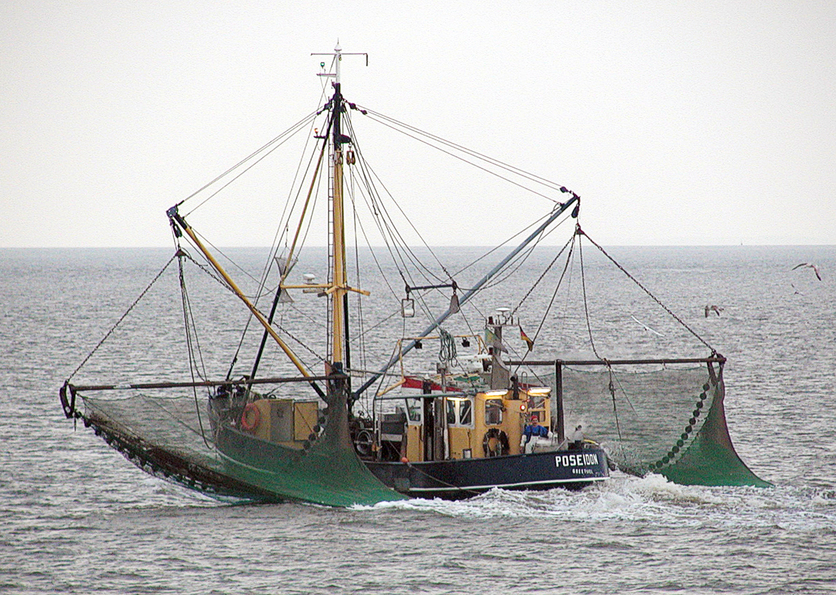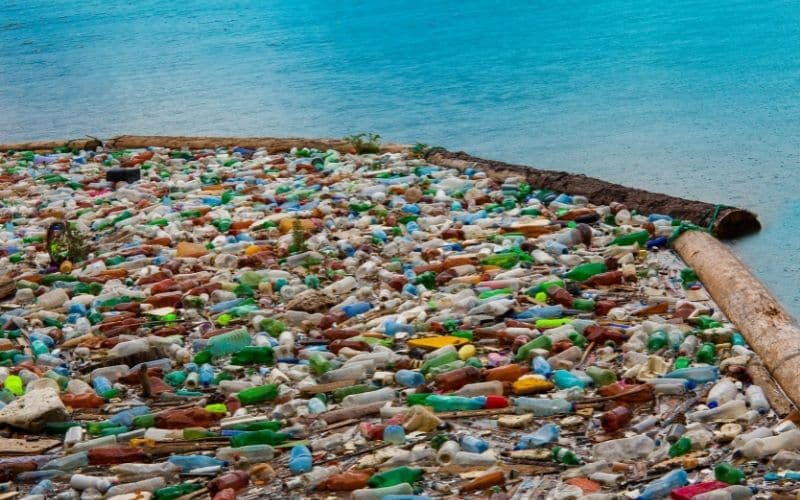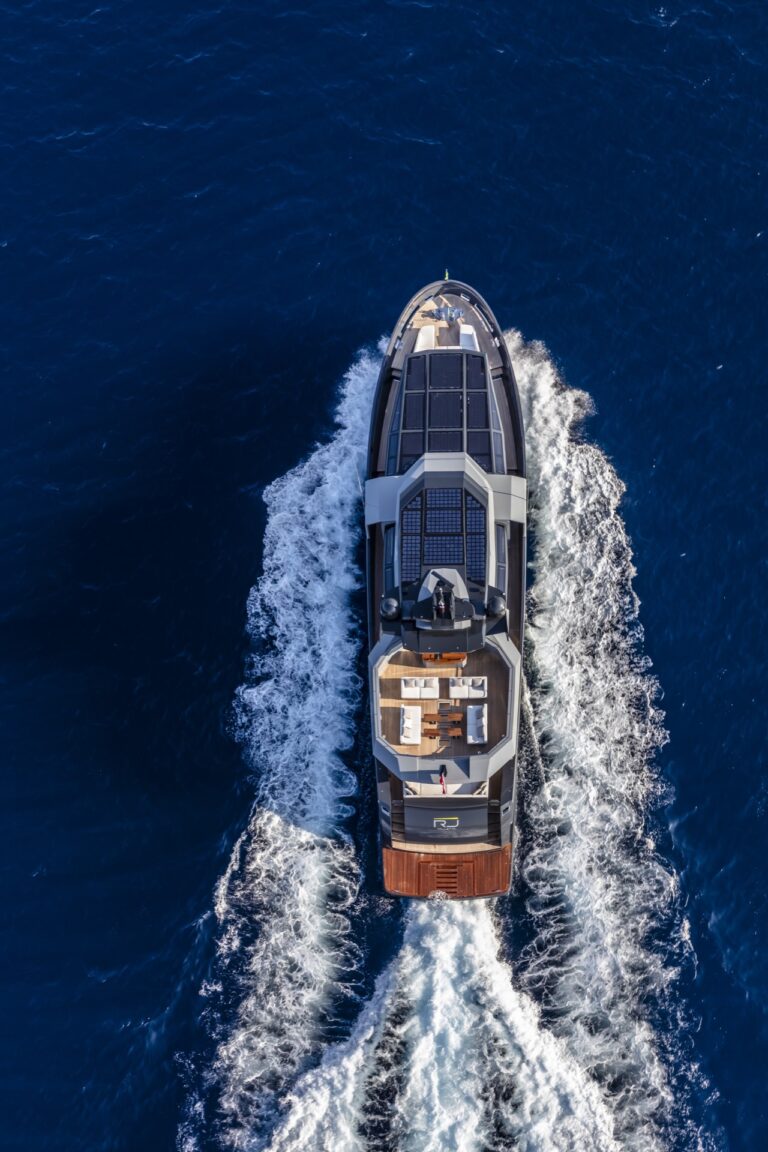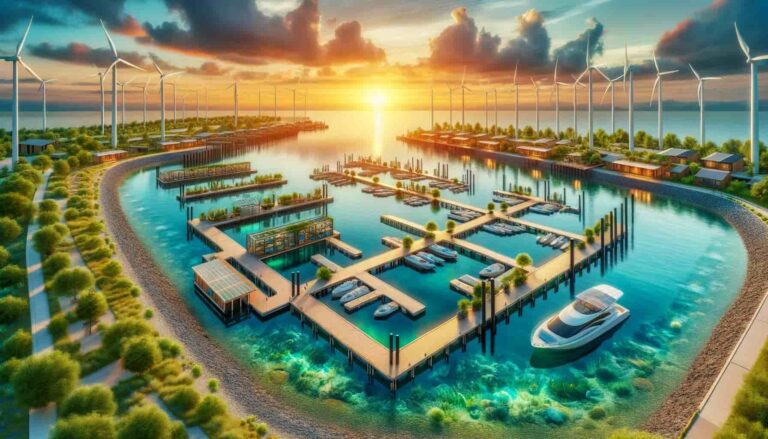The Impact of Sailing on Marine Ecosystems: How to Minimize Harm
Sailing has a significant impact on marine ecosystems, but harm can be minimized by adopting conservation measures and sustainable practices. This article explores the various ways in which sailing affects marine ecosystems and provides guidance on how to reduce negative impacts.
By implementing these strategies, sailors can enjoy their passion while safeguarding the fragile ecosystems they navigate through.
Understanding The Importance Of Minimizing Harm
The importance of minimizing harm to marine ecosystems through responsible sailing is crucial. By understanding the impact of sailing, we can take steps to minimize harm and protect our precious marine environments.
Marine ecosystems are home to a diverse array of organisms and are crucial for maintaining the delicate balance of our planet’s ecosystems. While sailing is a popular recreational activity, it can have a significant impact on these fragile environments. It is essential for sailors to understand the ecological significance of marine ecosystems and the potential negative effects of their actions.
By adopting responsible sailing practices, we can minimize harm and preserve these essential ecosystems for future generations.
Overview Of The Ecological Significance Of Marine Ecosystems:
- Marine ecosystems are teeming with life, from microscopic phytoplankton to magnificent whales. They play a vital role in supporting biodiversity and providing food and resources for countless species.
- These ecosystems produce a significant portion of the oxygen we breathe and help regulate the Earth’s climate by absorbing carbon dioxide.
- They also act as nurseries for many commercial fish species, supporting the livelihoods of millions of people worldwide.
Discussing The Potential Negative Effects Of Sailing On The Environment:
- Oil and fuel spills from boats can contaminate water and harm marine life. These pollutants can disrupt the delicate balance of marine ecosystems and have long-lasting effects on aquatic organisms.
- Improper disposal of waste, such as plastics and other non-biodegradable materials, can lead to marine pollution. This pollution can entangle marine animals and impact their health and survival.
- Anchoring in sensitive areas, such as coral reefs, can cause physical damage to these fragile ecosystems. The dragging anchor can break corals and disrupt their growth, leading to long-term destruction.
Highlighting The Need For Responsible Sailing Practices:
- By adopting responsible boating practices, such as using eco-friendly cleaning products and properly disposing of waste, sailors can minimize pollution and reduce their impact on marine ecosystems.
- Avoiding sensitive areas and anchoring in designated moorings or sandy bottoms helps protect fragile habitats, like coral reefs, from physical damage.
- Supporting sustainable fishing practices, such as practicing catch and release, can help conserve fish populations and preserve the delicate balance of marine ecosystems.
- Educating ourselves and others about the importance of minimizing harm when sailing can create a ripple effect of positive change and foster a culture of responsible boating.
By understanding the significance of marine ecosystems and taking proactive steps to minimize harm, sailors can enjoy their passion while preserving the breathtaking beauty and abundant life that our oceans provide. Let us all embrace responsible sailing practices and contribute to the conservation of these invaluable ecosystems for generations to come.
Sustainable Sailing Practices
Sustainable sailing practices aim to minimize the negative impact of sailing on marine ecosystems. By adopting eco-friendly measures, such as using renewable energy, reducing waste, and protecting wildlife, sailors can help preserve the health and beauty of the oceans for future generations.
In order to minimize the impact of sailing on marine ecosystems, it is important to adopt sustainable sailing practices. By choosing eco-friendly sailing equipment and materials, reducing carbon emissions and energy consumption, and properly managing waste on sailboats, sailors can contribute to the preservation and conservation of our oceans.
Let’s explore these practices in more detail:
Choosing Eco-Friendly Sailing Equipment And Materials:
- Opt for sails made from sustainable and recyclable materials, such as organic cotton, hemp, or recyclable synthetic fibers, to reduce environmental impact.
- Use non-toxic and biodegradable cleaning products for boat maintenance to prevent pollution in the water.
- Consider using eco-friendly antifouling paints or alternatives that minimize harm to marine life.
Reducing Carbon Emissions And Energy Consumption:
- Embrace renewable energy sources, such as installing solar panels or wind generators, to power onboard systems and reduce reliance on fossil fuels.
- Make use of energy-efficient equipment and appliances on board, such as LED lights and low-energy refrigeration units.
- Practice sailing techniques that rely on wind power rather than motor power whenever possible to reduce carbon emissions.
Proper Waste Management On Sailboats:
- Minimize single-use plastics by opting for reusable water bottles, food containers, and utensils. Dispose of any waste properly at designated facilities ashore.
- Separate and recycle waste on board, including plastic, paper, glass, and metal, when possible.
- Dispose of hazardous materials, such as batteries and oil, responsibly at designated collection points.
By implementing these sustainable sailing practices, sailors can play a significant role in safeguarding marine ecosystems and ensuring a healthier future for our oceans. Let’s sail responsibly and enjoy the beauty of our natural surroundings while minimizing our impact.
Protecting Marine Life
Sailing has a significant impact on marine ecosystems, but there are ways to minimize harm. By adopting eco-friendly practices and raising awareness, we can protect marine life and preserve the delicate balance of our oceans.
Recognizing The Vulnerability Of Marine Species And Habitats
Marine ecosystems are home to a vast array of species, many of which are highly sensitive to changes in their environment. Here are some key points to consider when it comes to recognizing and protecting the vulnerability of marine species and habitats:
- Understanding fragility: Marine species and habitats are intricately connected, forming a delicate balance that can easily be disrupted by human activities. Recognizing the fragility of these ecosystems is crucial to minimizing harm.
- Fostering biodiversity: Each species plays a unique role in maintaining the health and resilience of marine ecosystems. Protecting biodiversity helps to enhance the overall stability and productivity of these habitats.
- Identifying vulnerable species: There are certain marine species that are particularly vulnerable to disturbance or habitat degradation. It is important to identify these species and prioritize their protection through targeted conservation efforts.
- Preserving critical habitats: Coral reefs, seagrass beds, and mangrove forests provide essential habitats for numerous marine species. Conserving these critical habitats is essential in safeguarding the biodiversity and overall health of marine ecosystems.
Minimizing Disturbance To Marine Animals While Sailing
Sailing is a beautiful way to experience the open seas, but it is crucial to minimize disturbances to marine animals to ensure their well-being. Here are some important measures to take:
- Observe from a distance: When encountering marine animals in their natural habitat, keep a respectful distance to avoid causing stress or disrupting their natural behavior.
- Avoid excessive noise: Loud noises, such as loud music or engine revving, can startle and disturb marine animals. It is important to keep noise levels to a minimum and be aware of sounds that may disturb the underwater environment.
- Reduce speed: Slowing down while sailing near marine animals can help prevent collisions and minimize the effects of boat wakes on animals and their habitats.
- Follow responsible wildlife watching guidelines: Educate yourself on local regulations and best practices for wildlife watching. Respect their space, refrain from touching or feeding them, and never chase or surround them.
Preventing The Introduction Of Invasive Species Through Ballast Water Management
Ballast water is commonly used in sailing vessels to provide stability while at sea. However, it can unintentionally introduce invasive species from one location to another. To prevent this, effective ballast water management practices should be implemented:
- Ballast water exchange: Exchanging ballast water in designated zones or at least 200 nautical miles from shore can help minimize the risk of introducing invasive species. This process involves replacing ballast water from high-risk areas with open ocean water.
- Ballast water treatment systems: Installing ballast water treatment systems on sailing vessels can effectively neutralize or remove harmful organisms and reduce the likelihood of introducing invasive species.
- Strict compliance with regulations: Following international and regional ballast water management regulations, such as those established by the International Maritime Organization (IMO), is essential in preventing the unintentional spread of invasive species.
- Monitoring and inspection: Regular monitoring and inspection of ballast water tanks can help detect and address any potential issues, ensuring compliance with regulations and preventing the introduction of invasive species.
Remember, by recognizing the vulnerability of marine species and habitats, minimizing disturbance to marine animals while sailing, and implementing effective ballast water management practices, we can help protect our precious marine ecosystems and ensure their long-term health and sustainability. Let’s sail responsibly and be stewards of the seas.
Preserving Water Quality
Sailing in the ocean can have a detrimental effect on marine ecosystems. However, there are ways to minimize harm and preserve water quality, such as reducing chemical pollutants, practicing proper waste management, and adopting eco-friendly sailing practices.
Sailing is a wonderful and exhilarating activity that allows us to connect with the beauty of the ocean. However, it’s important to be mindful of the impact sailing can have on water pollution and take steps to minimize harm. By understanding the impact of sailing on water pollution and implementing practices to prevent fuel and oil spills, as well as managing graywater and sewage discharge on sailboats, we can ensure the preservation of water quality.
Understanding The Impact Of Sailing On Water Pollution:
- Marine ecosystems can be negatively impacted by various pollutants that are released during sailing activities. Some of the key factors contributing to water pollution include:
- Fuel and oil spills: Accidental spills of fuel and oil can have devastating effects on marine life, disrupting their habitat and posing a risk to their health.
- Graywater and sewage discharge: Improper disposal of graywater (wastewater from sinks, showers, etc.) And sewage discharge can introduce harmful substances and nutrients into the water, leading to contamination and eutrophication.
Implementing Practices To Prevent Fuel And Oil Spills:
Preventing fuel and oil spills is crucial to preserving water quality and protecting marine ecosystems. Consider the following practices:
- Regular maintenance and inspection of the engine and fuel system can help identify any potential issues or leaks before they worsen.
- Properly securing fuel and oil containers to minimize the risk of spills during rough sailing conditions.
- Using oil absorbents, such as oil booms or absorbent pads, to quickly respond to any accidental spills and prevent further contamination.
- Educating crew members and sailors about the importance of spill prevention and proper fuel handling techniques to minimize the chances of accidents happening.
Managing Graywater And Sewage Discharge On Sailboats:
Proper management of graywater and sewage discharge is essential to prevent water pollution and protect marine ecosystems. Here are some effective strategies:
- Installing a marine sanitation device (MSD) to treat sewage before it is discharged into the water. MSDs can remove harmful bacteria and pathogens, ensuring cleaner water.
- Utilizing holding tanks for sewage storage while at sea and only discharging it at approved pump-out facilities onshore.
- Adopting eco-friendly cleaning products onboard to reduce the impact of graywater on marine life.
- Raising awareness among sailors and promoting responsible boating practices that prioritize the protection of marine ecosystems.
By understanding the impact of sailing on water pollution and taking necessary precautions to prevent fuel and oil spills, as well as managing graywater and sewage discharge responsibly, sailors can actively contribute to the preservation of water quality. Let us sail into the future, ensuring that our oceans remain pristine for generations to come.
Conservation And Restoration Efforts
Conservation and restoration efforts are vital to minimizing the negative impact of sailing on marine ecosystems. By implementing measures to reduce pollution, protect marine life, and raise awareness, we can ensure the long-term sustainability of our oceans. Together, we can preserve these valuable ecosystems for future generations
Supporting And Participating In Marine Ecosystem Restoration Projects
Marine ecosystems are facing numerous threats due to human activities, such as overfishing, pollution, and habitat destruction. It is crucial for sailors and boating enthusiasts to actively support and participate in marine ecosystem restoration projects. Here are some ways you can contribute to the restoration and conservation efforts:
- Donate to reputable marine conservation organizations that focus on ecosystem restoration projects.
- Volunteer your time and skills to help with restoration activities, such as coral reef rehabilitation or mangrove planting.
- Join community-based restoration initiatives and actively participate in their activities.
- Educate yourself about the local marine ecosystems and contribute to scientific research that aims to monitor and restore these habitats.
- Support sustainable fishing practices and raise awareness about the importance of preserving and restoring marine ecosystems.
Engaging In Citizen Science Initiatives For Marine Conservation
Citizen science initiatives have gained popularity in recent years as a way to engage individuals in scientific research and data collection. By participating in citizen science projects, sailors can contribute valuable data to marine conservation efforts. Here are a few ways you can get involved:
- Report marine wildlife sightings, such as dolphins or whales, to organizations that track their populations and movements.
- Collect water samples to assess water quality and contribute to ongoing monitoring programs.
- Monitor and report invasive species in coastal areas, helping to prevent their spread and mitigate their impact on local ecosystems.
- Participate in beach clean-ups to remove marine debris and prevent it from harming marine life.
- Share your sailing experiences and observations through blogs or social media platforms to raise awareness about marine conservation issues.
Collaborating With Local Communities And Organizations For Sustainable Sailing Practices
Sailors can make a positive impact by collaborating with local communities and organizations to promote sustainable sailing practices. By working together, we can minimize our impact on the marine ecosystem and ensure its long-term health. Here are a few collaborative actions to consider:
- Engage in dialogue with local fishermen, conservation organizations, and government agencies to develop sustainable fishing and boating practices.
- Support local businesses that prioritize sustainability and eco-friendly practices, such as using biodegradable cleaning products or supporting sustainable seafood markets.
- Participate in or organize educational workshops and events that promote sustainable sailing practices among sailors and boating enthusiasts.
- Promote responsible boat maintenance and disposal practices to prevent pollutants from entering the water.
- Advocate for the creation of marine protected areas and be actively involved in their management and conservation efforts.
By supporting and participating in restoration projects, engaging in citizen science initiatives, and collaborating with local communities and organizations, sailors can play a vital role in minimizing harm to marine ecosystems. Together, we can ensure the preservation and restoration of our precious oceans for future generations to enjoy.
Conclusion: Taking Responsibility As Sailing Enthusiasts
Sailing enthusiasts must take responsibility to minimize the harmful impact on marine ecosystems by practicing sustainable sailing techniques and proper waste management. By being conscious of our actions, we can preserve the beauty of our oceans and protect the delicate balance of marine life.
Summarizing The Importance Of Minimizing The Impact Of Sailing On Marine Ecosystems
Sailing is a beloved pastime for many enthusiasts who find solace and excitement on the open waters. Yet, as sailing becomes more popular, it is crucial that we recognize the impact it has on our precious marine ecosystems. Minimizing this impact is not only necessary to preserve the beauty and diversity of our oceans but also to ensure their sustainability for future generations.
By adopting responsible sailing practices, we can play our part in minimizing harm and becoming stewards of the sea.
Encouraging A Collective Effort To Preserve And Protect Our Oceans
Preserving and protecting our oceans is a collective responsibility that extends beyond individual sailors. It requires a collaborative effort from sailing clubs, organizations, and governments to implement sustainable policies and practices. By working together, we can establish regulations that prioritize the health of marine ecosystems while still enjoying the exhilaration of sailing.
Let’s join forces to promote conservation initiatives, support research efforts, and raise awareness about the importance of protecting our oceans.
Empowering Individuals To Adopt Responsible Sailing Practices
As sailing enthusiasts, we have the power to make a positive impact on marine ecosystems by adopting responsible practices. Here are some ways in which we can navigate the waters while minimizing harm:
- Promote responsible waste management: Dispose of trash and waste properly, both on board and onshore. Avoid throwing anything overboard, including plastics, as they can harm marine life and habitats.
- Use environmentally friendly cleaning products: Opt for biodegradable and non-toxic cleaning products to minimize pollution and the release of harmful chemicals into the water.
- Respect marine life: Avoid disturbing or touching marine creatures, including coral reefs. Give them the space they need to thrive and reproduce.
- Choose sustainable fishing practices: If you choose to fish while sailing, abide by catch limits and regulations. Consider catch-and-release practices to help preserve fish populations.
- Be mindful of anchor placement: Anchor in designated areas to avoid damaging sensitive marine habitats such as coral reefs and seagrass beds.
- Support eco-friendly boating businesses: Choose marinas, charters, and sailing schools that prioritize sustainable practices and environmental conservation.
By adopting these responsible sailing practices, we can minimize our impact on marine ecosystems and ensure that future generations can experience the beauty and wonders of our oceans.
It is imperative that sailing enthusiasts recognize the importance of minimizing the impact of their pursuits on marine ecosystems. Through a collective effort and by empowering individuals to adopt responsible sailing practices, we can play a significant role in preserving and protecting our oceans.
Let us navigate the waters with utmost care and respect for the fragile ecosystems beneath the surface, ensuring their preservation for generations to come.

Credit: www.sciencelearn.org.nz
Frequently Asked Questions Of The Impact Of Sailing On Marine Ecosystems: How To Minimize Harm
How Can We Reduce Water Pollution From Boats?
To reduce water pollution from boats, use eco-friendly cleaning products, avoid fuel spills, properly dispose of waste, and maintain engine and exhaust systems.
What Are The Environmental Hazards Of Sailing?
Sailing poses environmental hazards such as oil spills, pollution, vessel collisions, and damage to marine ecosystems.
How Do Boat Owners Decrease Marine Biodiversity?
Boat owners can decrease marine biodiversity through activities that harm marine life and ecosystems.
How Can I Make My Boat Environmentally Friendly?
To make your boat environmentally friendly, try these steps: 1. Use eco-friendly cleaning products and avoid throwing waste overboard. 2. Opt for a fuel-efficient engine or consider electric propulsion. 3. Minimize your carbon footprint by reducing speed and practicing responsible boating.
4. Support marine conservation efforts and educate others about the importance of protecting the environment.
Conclusion
Sailing is a beautiful and exciting activity that allows us to immerse ourselves in the wonders of the marine world. However, it is crucial to be aware of the potential negative impacts that sailing can have on marine ecosystems. By adopting a few simple practices, we can minimize harm and preserve the delicate balance of these ecosystems.
Maintaining a safe distance from sensitive habitats, such as coral reefs and seagrass beds, helps to prevent damage and disturbance to the resident species. Proper disposal of waste and avoiding the release of harmful chemicals into the water also play a significant role in protecting marine life.
Additionally, practicing responsible fishing and avoiding the introduction of invasive species are essential for the health of the ecosystem. By being mindful and respectful of the marine environment, we can continue to enjoy the beauty of sailing while ensuring its long-term sustainability.








